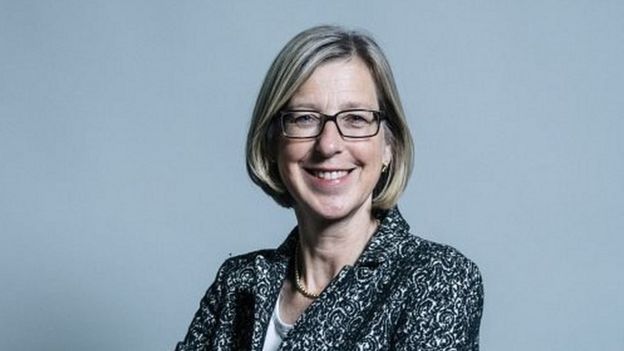MPs vote to reject no-deal Brexit
MPs have voted to reject leaving the EU without a withdrawal agreement.
Theresa May said there was a "clear majority" against a no-deal Brexit but the "legal default" was that the UK would leave without a deal on 29 March if no deal is reached.
MPs will now get a vote on delaying Brexit, said the prime minister.
That vote will take place on Thursday, and if it is passed - and the EU agrees to it - the UK will not leave the EU as planned on 29 March.
There could be a short extension - or a much longer one - depending on whether MPs backed her withdrawal deal "in the coming days", said the prime minister.
That means the government could make a third attempt to get Mrs May's deal through Parliament by 20 March, after MPs voted overwhelmingly on Tuesday to reject it.
Commons proceedings descended into confusion earlier, as the government tabled a motion to prevent the UK from exiting the EU on 29 March without a deal.
Before MPs voted on the government motion, they backed an amendment tabled by Labour's Yvette Cooper rejecting a no-deal Brexit under any circumstances - by just four votes.
This dramatic development led to the government ordering Conservative MPs to vote against its own motion, despite earlier promising them a free vote.
The government motion, as amended, was passed by 321 votes to 278, a majority of 43, reinforcing the message that MPs do not want to leave without a deal.
 Image copyrightUK PARLIAMENTImage captionSarah Newton has quit the government after defying the whips
Image copyrightUK PARLIAMENTImage captionSarah Newton has quit the government after defying the whips
Thirteen government ministers - including Work and Pensions Secretary Amber Rudd, Business Secretary Greg Clark, Justice Secretary David Gauke and Scottish Secretary David Mundell - defied the government whips by abstaining in the vote.
Work and pensions minister Sarah Newton voted against the orders of the whips and has now resigned.
David Mundell, who abstained in the vote, said: "I am not resigning because I support the prime minister's course of action."
He said he backed the PM's deal and had always made clear his opposition to a no-deal Brexit.
Speaking after the result of the vote was read out, Mrs May said "the options before us are the same as they always have been".
"The legal default in EU and UK law is that the UK will leave without a deal unless something else is agreed. The onus is now on every one of us in this House to find out what that is."
On Thursday, MPs will be asked if they want to delay Brexit until 30 June - to allow the necessary legislation to get through Parliament.
But that is only if MPs back Mrs May's deal by 20 March, the government says.
If they fail to back her deal by then, then the delay could be longer, Mrs May warned MPs, and it could clash with the European Parliament elections in May.
"I do not think that would be the right outcome. But the House needs to face up to the consequences of the decisions it has taken," she said.
Vote results
MPs also voted by 374 to 164 to reject a plan to delay the UK's departure from the EU until 22 May 2019, so that there can be what its supporters call a "managed no-deal" Brexit.
This amendment was proposed by Prime Minister Theresa May's former second-in-command, Conservative MP Damian Green, and was backed by prominent Conservative Brexiteers and Remainers.
It was known as the Malthouse Compromise - after Kit Malthouse, the government minister who devised it.
Labour leader Jeremy Corbyn said that Parliament must now take control of the Brexit process and his party will work across the House of Commons to seek a compromise solution.
A European Commission spokesperson said: "There are only two ways to leave the EU: with or without a deal. The EU is prepared for both.
"To take no deal off the table, it is not enough to vote against no deal - you have to agree to a deal.
"We have agreed a deal with the prime minister and the EU is ready to sign it."











※コメント投稿者のブログIDはブログ作成者のみに通知されます